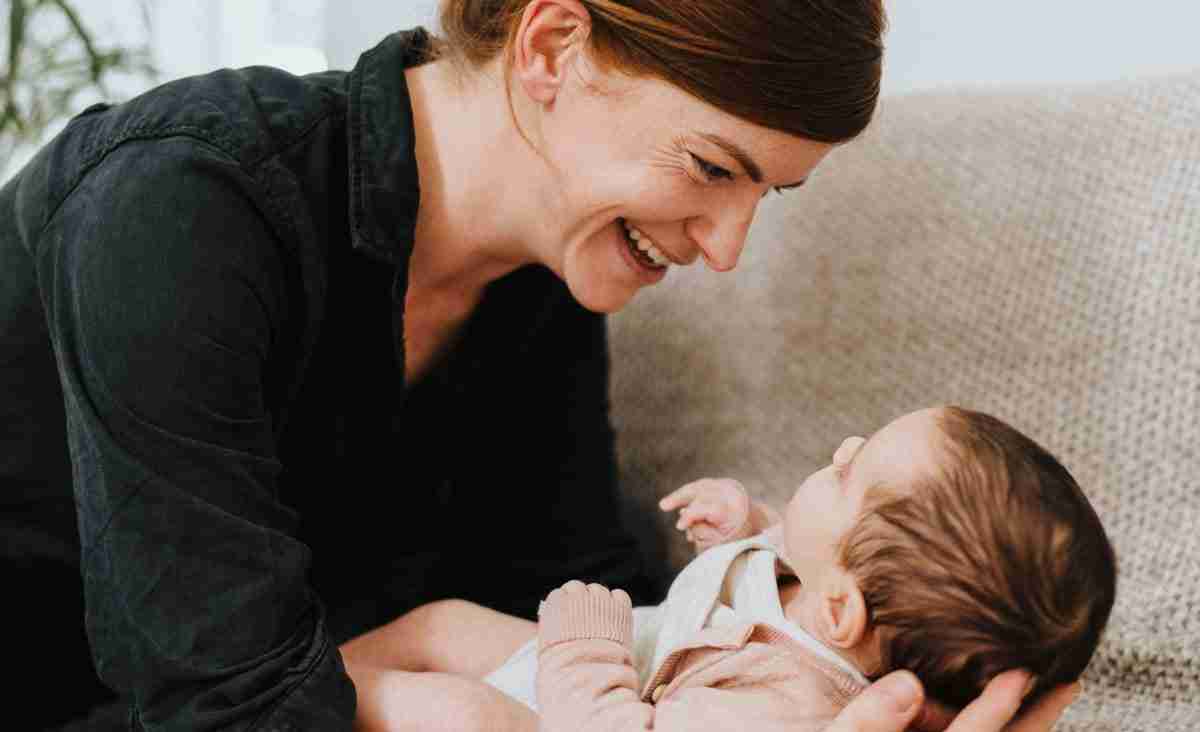
Late baby happiness: getting pregnant over 40
40 is the new 30? This is definitely true when it comes to having children. We'll show you the challenges, but also the advantages, of becoming a parent late in life.
Are you in your late 30s or already over 40 and have not yet fulfilled your desire to have children? You're not alone these days. Studies show that the average age of mothers continues to rise. In Austria, it is already around 31 years old. In Germany, every fourth child born now has a mother who is over 35. And there are also plenty of celebrity examples - Madonna, Kim Basinger and Nicole Kidman are just a few well-known names who became mothers (again) at over 40.
So you could almost think that it is a "trend" to start family planning at 40 plus. However, there are countless reasons why many people think about getting pregnant relatively late.
Why are more and more couples having children so late?
On the one hand, there are social reasons for this. Women are increasingly better educated and often want to get ahead in their job and on the career ladder before they think about having children. For many, it doesn't "fit" until later - either because they have a better financial basis or because the right partner is only then at their side. A sense of security is particularly important for many people these days. This also has its advantages: older couples usually have a more stable environment, more financial reserves and generally live healthier lives.
However, sometimes there are also involuntary reasons why child planning has had to wait. Because many women do not start family planning until later, fertility problems are often recognised and treated late. Many women have also used hormonal contraception for a long time up to this point and don't realise it, how your cycle works at all. This means that the fulfilment of the desire to have children can take longer and unfortunately also become more difficult.
Wanting children over 40: What you need to know!
Basically, we can tell you that your age alone says nothing about whether you can get pregnant naturally. However, it cannot be denied that the probability slowly but surely decreases over 40. The reason for this is Declining number and quality of eggs. Pre-existing conditions (such as cardiovascular disease, thyroid problems or diabetes) also become more common with age. This increases the risk of malformations of the embryo or early miscarriages - or can prevent pregnancy altogether.
This "ageing process" takes place at different speeds for every woman. For some, it starts in their mid-30s, for others well into their 40s, which is why it is impossible to say with certainty when your own fertility will really start to decline. Fertility expert and femSense mentor Dr Michael Schenk from the The Kinderwunsch Institut advises not to wait too long, however, because:
According to the World Health Organisation (WHO), you become an "unfulfilled desire to have children" if you have not become pregnant after one year without contraception. To avoid wasting valuable time - and eggs - we therefore recommend that couples over 35 consult an expert after just six unconcealed cycles without a successful pregnancy. Because the reality is: over 35, only around 25% of egg cells are still genetically fit - meaning that only three out of 12 cycles per year are still "good".
Especially if you also use ovulation trackers such as femSense but you still don't get pregnant, you need to act quickly. This is because femSense can determine exactly when (and whether) you are ovulating and when the best time in your cycle has arrived, to get pregnant. However, if femSense does not show you ovulating several times in a row or if your cycles are conspicuously long or short, this may be an indication that something is wrong. In this case, it's worth seeing a gynaecologist or a fertility specialist. The sooner, the better!
Unfulfilled desire to have children over 40? Seek help in good time!
It can be frightening to be confronted with the possibility of an unfulfilled desire to have children. This is why many people are afraid to seek medical support. However, a detailed diagnosis is the first step towards fulfilling your wish after all. Your doctor will usually carry out some more in-depth examinations to find or rule out causes - such as checking the fallopian tubes, thyroid and hormone status. Also a Spermiogram with your partner can be useful.
The anti-Müllerian hormone (AMH) in particular is an important indicator of your fertility status. It shows how many eggs your ovaries are still producing. If the hormone concentration in your blood falls below a certain level, this is an indicator of limited fertility. In this case, your doctor will probably advise you to undergo artificial insemination. This may sound worrying at first, but modern medicine is already very advanced in this area and offers a wide range of options. Although there is no guarantee of success, you can be sure that your dream child couldn't be any more desirable!
Support family planning naturally
Regardless of whether you are trying naturally or artificially, it is worth creating a good basis for pregnancy at any age. For example, through a balanced Nutritiona lot of exercise and a healthy lifestyle. The latter in particular can have an impact on your fertility. So if you haven't quit smoking yet, for example, now might be the ideal time to do so. The same also applies to your partner! Although men are able to father children for much longer, there are also limiting factors that can make pregnancy more difficult for them.
If you are not already doing so, it may also be worth monitoring your cycle and accurately determining your ovulation - for example with femSense. This not only helps you to stay in the natural cycle the perfect time to get pregnant but can also visualise possible cycle problems. For example, if the femSense patch cannot detect ovulation or your cycles are very long or very short. Although the length of a woman's cycle varies naturally and is rarely exactly 28 days long, the femSense recordings can be valuable information for you and your doctor.
So it's never too late to learn more about yourself and your body - whether you start at 20 or 40. And when it comes down to it, sound knowledge about your own cycle is worth its weight in gold!
Sources:
Average age of mother at birth in Austria by federal state in 2022
birth statistics: average age of mothers increases (2022)
Pregnant after 40: advantages, disadvantages and risks (2022)
Wendler (2022), Anti-Müllerian hormone





Leave a Reply